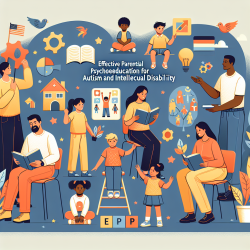Introduction
In the realm of healthcare, providing compassionate and comprehensive end-of-life care is paramount. The research article, "Family members’ perceptions of end-of-life care across diverse locations of care," sheds light on the critical areas that require attention to enhance the quality of end-of-life care. As practitioners, understanding these insights and integrating them into practice can significantly improve patient and family experiences during these sensitive times.
Understanding Family Needs
The study highlights that bereaved family members often have unmet needs for information regarding the patient's condition, the dying process, and symptom management. Emotional support for both patients and their families is frequently lacking, particularly in acute and residential care settings. Conversely, hospice care tends to meet these needs more effectively, emphasizing the importance of a supportive environment.
Key Areas for Improvement
- Communication and Information Sharing: Practitioners should prioritize transparent and empathetic communication with families, ensuring they are well-informed about the patient's condition and the care process. This can alleviate anxiety and foster a sense of preparedness.
- Emotional and Spiritual Support: Providing emotional and spiritual support is crucial. Engaging with families to understand their needs and offering appropriate resources can enhance their experience and satisfaction.
- Personalized Care: Recognizing and respecting individual and cultural preferences in care can greatly impact satisfaction. Tailoring care plans to align with the patient's and family's values is essential.
- Coordination of Care: Effective coordination among healthcare providers ensures seamless care delivery. Practitioners should work collaboratively to address the holistic needs of patients and families.
Implementing Change
Practitioners can take actionable steps to integrate these findings into their practice:
- Participate in training programs focused on communication skills and cultural competence.
- Engage in multidisciplinary team meetings to discuss and plan comprehensive care strategies.
- Utilize technology, such as apps and online resources, to provide families with accessible information and support.
- Advocate for policies that prioritize palliative care as a core service within healthcare organizations.
Encouraging Further Research
While this study provides valuable insights, further research is essential to explore innovative approaches to end-of-life care. Practitioners are encouraged to engage in research initiatives that focus on improving care delivery and addressing the unique needs of diverse patient populations.
To read the original research paper, please follow this link: Family members’ perceptions of end-of-life care across diverse locations of care.










